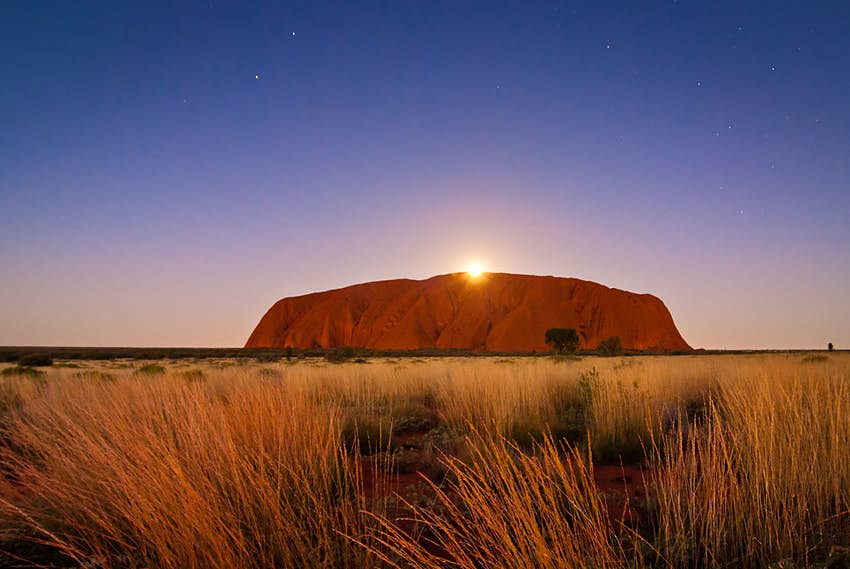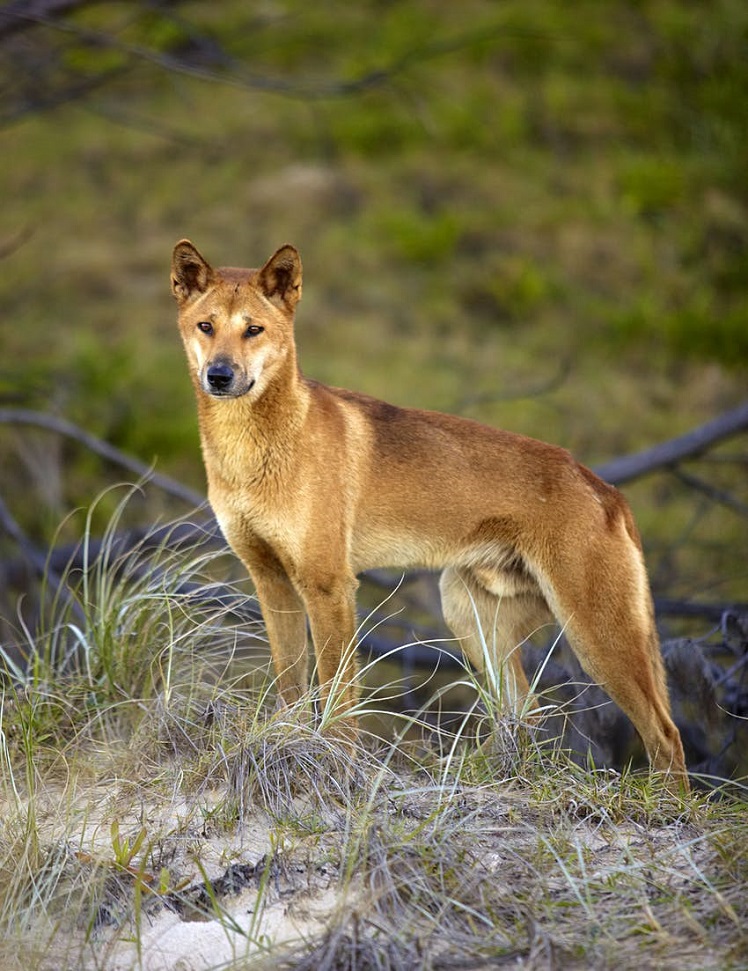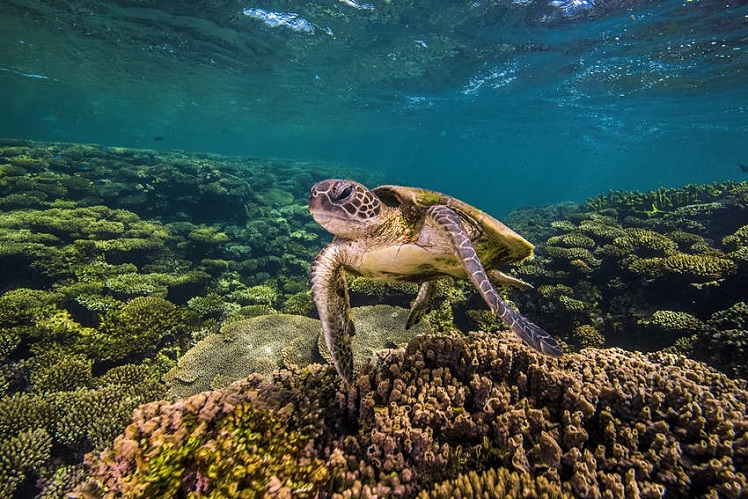
Australia's 10 best natural wonders
TripFalcon August 09, 2020
Last Update: 2020-08-25 12:22:29From the stunning Twelve Apostles jutting out of the sea to the uncanny views of the Pinnacles Desert, Australia is a country with a bounty of wonders that date back centuries. From the coastal vibes to the arid, desolate spots, here are 10 natural wonders that make the land of Oz a popular destination for those with a zest for adventure.
1. Great Barrier Reef
The Great Barrier Reef is as fragile as it is beautiful. Stretching more than 2000km along the Queensland coastline, it's a complex ecosystem populated with dazzling coral, languid sea turtles, gliding rays, timid reef sharks and tropical fish of every colour and size. Whether you dive on it, snorkel over it or explore it via a scenic flight or a glass-bottomed boat, this vivid undersea kingdom and its coral-fringed islands are so unforgettable people are signing up to become a Citizen of the Great Barrier Reef to help save it.
2. Daintree Rainforest
Lush green rainforest replete with fan palms, prehistoric-looking ferns and twisted mangroves tumble down towards a brilliant white-sand coastline in the ancient, World Heritage-listed Daintree rainforest. Upon entering the forest, you’ll be enveloped in a cacophony of birdsong, frog croaking and the buzz of insects. Continue exploring the area on wildlife-spotting night tours, mountain treks, interpretive boardwalks, canopy walks, self-guided walking trails, 4WD trips, horse riding, kayaking and crocodile-spotting cruises. You might even spot a prehistoric cassowary.

The Uluru is an iconic Australian natural wonder © Dieter Tracey / 500px
3. Uluru
Australia’s most recognised natural wonder, Uluru draws pilgrims from around the world like moths to a big red flame. No matter how many postcard images you have seen, nothing prepares you for the Rock’s immense presence, character-pitted surface and spiritual gravitas. There's plenty to see and do: meandering walks, bike rides, guided tours, desert culture and simply contemplating the many changing colours and moods of the great monolith itself. The one thing you can’t do – climb the Uluru. Stay off!
4. The Whitsundays
You can hop around a whole stack of tropical islands in this seafaring life and never find anywhere with the sheer beauty of the Whitsundays. Travellers of all monetary persuasions launch yachts from Airlie Beach and drift between these lush green isles in a slow search for paradise (you'll probably find it in more than one place). Don't miss Whitehaven Beach – one of Australia's (and the world's) best. Wish you were here?
5. The Twelve Apostles
The most enduring image for most visitors to the Great Ocean Road, the Twelve Apostles jut from the ocean in spectacular fashion. There they stand, as if abandoned to the waves by the retreating headland, all seven of them. Just for the record, there never were 12, and they were called the “Sow and Piglets” until some bright spark in the 1960s thought they might attract tourists with a more venerable name.
The two stacks on the eastern (Otway) side of the viewing platform are not technically Apostles – they’re Gog and Magog. And the soft limestone cliffs are dynamic and changeable, suffering constant erosion from the tides: one 70m-high stack collapsed into the sea in July 2005 and the Island Archway lost its archway in June 2009. The best time to visit is sunset, partly to beat the tour buses and also to see little penguins returning ashore.

You'll have plenty of company on Fraser Island © Matt Munro/Lonely Planet
6. Fraser Island
The local Butchulla people call it K’gari – “paradise” – and for good reason. Sculpted by wind, sand and surf, the striking blue freshwater lakes, crystalline creeks, giant dunes and lush rainforests of this gigantic sandbar form an enigmatic island paradise unlike any other. Fraser Island is the largest sand island in the world (measuring 120km by 15km) and the only known place where rainforest grows on sand.
7. Tasmania’s Cradle Mountain
A precipitous comb of rock carved out by millennia of ice and wind, crescent-shaped Cradle Mountain is Tasmania's most recognisable – and spectacular – mountain peak. It's an all-day walk (and boulder scramble) to the summit and back for unbelievable panoramas over Tasmania's alpine heart. Or you can stand in awe below and fill your camera with the perfect views across Dove Lake to the mountain. If the peak has disappeared in clouds or snow, warm yourself by the fire in one of the nearby lodges … and try again tomorrow.

There's no shortage of models to photograph at the beautiful Ningaloo Reef © Migration Media - Underwater Imaging/Getty Images
8. Ningaloo Reef
Snorkel among pristine coral, surf off seldom-visited reefs and dive at one of the world's premier locations at this World Heritage-listed marine park, which sits off the North West Cape on the Coral Coast in Western Australia. Rivalling the Great Barrier Reef for beauty, Ningaloo has more accessible wonders: shallow, turquoise lagoons are entered straight from the beach for excellent snorkelling. Development is very low-key, so be prepared to camp, or take day trips from the access towns of Exmouth and Coral Bay.
9. The Outback
Whether you're belting along South Australia's Oodnadatta Track in a 4WD or depreciating your van on the southern section of the Birdsville Track, you'll know you're not just visiting the outback – you've become part of it. Out here, the sky is bluer and the dust redder than anywhere else. Days are measured in kilometres, spinifex mounds and tyre blowouts. If time isn’t on your side, a road trip to the mining town of Broken Hill may be as far from the coast as you get.
10. Pinnacles Desert
It could be mistaken for the surface of Mars, but scattered among the dunes of Nambung National Park, thousands of ghostly limestone pillars rise from the surrounding plain like a vast, petrified alien army. One of the west's most bizarre landscapes, the Pinnacles Desert attracts thousands of visitors each year. Although it's easily enjoyed as a day trip from Perth, staying overnight in nearby Cervantes allows for multiple visits to experience the full spectrum of colour changes at dawn, sunset and the full moon, when most tourists are back in their hotels.

